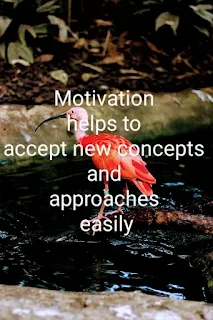Introduction-:
In today’s fast-paced world, the ability to be flexible and adaptable is more crucial than ever. Changes, whether big or small, are constant, and our success often hinges on how well we manage these transformations. Embracing motivational ideas serves as a powerful tool to cultivate flexibility in our lives. By adopting a mindset that welcomes change rather than resists it, we open ourselves up to new ways of thinking and problem-solving. Flexibility not only allows us to adjust our habits and routines but also empowers us to respond positively to unexpected challenges.
Cultivating Flexibility Through Motivation-:
Motivational ideas can be effectively applied to cultivate and enhance flexibility in various aspects of life. It is a common fact that we all go through changes in different forms throughout various stages of life. For instance, a young adult may face considerable changes as they transition from college to the workforce, adjusting their routines and priorities. It has been observed that sometimes these changes occur on a trivial scale, while at other times they manifest as significant transformations. It is flexibility that enables one to understand the importance of coping with new perceptions and perspectives.
Th Relationship Between Flexibility and Adaptability-:
We accept that old habits and routines die hard, so flexibility leads us towards adaptability and prepares us for necessary adjustments. For example, an employee who is willing to absorb feedback and adjust their work habits can thrive in a constantly evolving corporate environment. The more flexible we are, the more adaptable we become. If a person is not flexible enough to adapt to new perceptions or situations, it is easy to see who will pay the price of stubbornness. In such cases, when one fails to address or attain their objectives, discouragement and desperation can take hold.
Embracing Change for Personal Growth-:
If you refuse to be flexible, you will struggle to transform yourself into a better individual, and the skill of adaptability will fall short in making you stronger and more efficient. Adaptability and flexibility open up a plethora of valuable strategies required to navigate this ever-changing world. For example, a professional who invests time in learning new technologies can adapt to industry changes more effectively, thereby enhancing their career prospects. These motivational elements demonstrate how inspiring ideas contribute to developing flexibility.
Developing a Growth Mindset-:
Motivation can help individuals develop a growth mindset, which embraces challenges and sees setbacks as opportunities for growth. People with a motivated mindset are more prone to approach new situations with an open and flexible perspective. For instance, a student who faces difficulties in a subject may see it as an opportunity to seek help, thereby enhancing their understanding and overall performance. Inspiration encourages individuals to embrace change, viewing it as a chance for personal or professional development while diminishing the resistance to change.
Setting Flexible Goals-:
Encouragement plays a crucial role in setting and pursuing goals. By creating flexible goals that can be adapted to changing circumstances, individuals can maintain motivation even in the face of unexpected twists and turns. For example, an athlete adjusting their training regimen to account for an injury can continue making progress towards their performance objectives. Motivation builds resilience, allowing individuals to rebound from setbacks and challenges. Being motivated to explore solutions amid obstacles fosters flexibility in adapting strategies and tactics.
The Drive for Continuous Learning-: Inspiration fuels a desire for continuous learning and self-improvement. By staying motivated to acquire new skills and knowledge, individuals can retain their adaptability in changing environments. For instance, a software developer who actively seeks training on emerging programming languages can better respond to market demands. Moreover, inspiration encourages individuals to seek feedback, which promotes learning from others and fosters diverse perspectives that enhance flexibility in their processes.
Broadening Perspectives-:
Motivation can push individuals to broaden their perspectives and stay open-minded. When motivated, individuals are more willing to consider different viewpoints and incorporate new ideas into their approach, fostering flexibility. Life becomes easier when we aim to adapt rather than remain rigid in our views. For example, a manager who openly listens to feedback from team members can adapt their management style for the benefit of the entire team. Flexibility is essential; if one wishes to enjoy the fruits of success, they must be willing to remain adaptable.
Conclusion-:
The importance of flexibility in our lives cannot be overstated. By leveraging motivation, we can develop resilience, foster a growth mindset, and remain open to new perspectives. This adaptability enables us to navigate life’s uncertainties with confidence and grace. As we aim to achieve our goals and enrich our personal and professional lives, being flexible becomes essential. It helps us embrace change, learn continuously, and seek feedback, all while maintaining our motivation. Ultimately, those who practice flexibility will not only thrive but also flourish in the ever-evolving landscape of life. So, let us commit to nurturing our flexibility and adaptability, paving the way for a more successful and fulfilling future.








0 Comments
If you want to clear your doubts regarding anything, please let me know